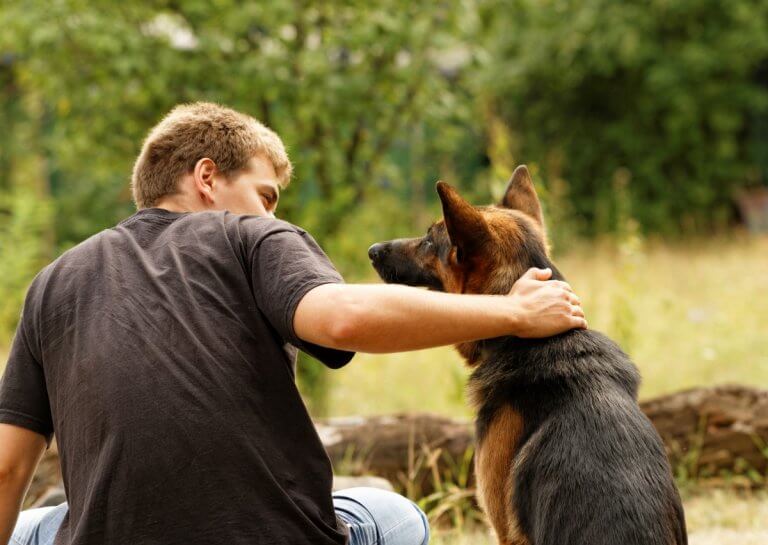
While plenty of college students face loneliness and homesickness during their first year, international students may find it harder because they’re so far away from all that’s familiar.
Local students can go home during semester breaks or a long weekend, or have the option of having their family visit them, but for some international students, going back even once a year is a luxury.
Along with culture shock, adapting to a new climate, language barriers, academic stress, and other issues can make it quite difficult for international students.
For those in need of comfort, canine therapy could be the answer.
Canine therapy is exactly what it sounds like – allowing students to connect with furry four-legged friends as a way to combat feelings of sadness, loneliness, depression, or other factors that affect mental health.

Therapy dogs help students with feelings of stress and loneliness. Source: Shutterstock
At Carleton University in Ottawa, Canada, the canine therapy programme has helped both local and international students since its launch in 2016.
When Brazilian international student Giovana Link arrived at the university in the fall of 2016, she knew she would have to confront the reality that she was a long way from her hometown of Porto Alegre, Brazil.
She was faced with culture shock, language barrier issues, and the reality of being so far from home, all of which left her feeling more than a little overwhelmed.
Then she met a dog named Blue, a six-year-old Great Dane/Pointer mix, through the canine therapy programme, and he helped her overcome these issues.
She said, “When I first went to Blue I thought it was going to be a one- or two-time thing – maybe I just missed my dog and that was all I needed. But it turned out to be totally different.”
Link ended up visiting Blue every week throughout the whole semester, and still does today. The programme has since grown to include seven therapy dogs.
The impact of visiting Blue was significant, helping Link feel less alone.
She explained, “During the time that I am with him…I can forget that I am so far from home, that I miss my family and friends or that I am having a really hard time with classes. It is the true moment that I don’t worry about things.”
Blue belongs to Shannon Noonan, Special Project Officer for the Office of the Vice-President who used to work in one of Carleton’s student residences.
She used to bring her dog with her to work, and after doing some evaluations of student interactions with her dog, she was approached by the centre for initiatives in education to run the pilot programme.
“There’s some research with Canadian universities that shows that [canine therapy] helps with [student] retention in a way, that they help with community atmosphere and sort of a connection to the university and feeling like a sense of home,” she said.
Students at Colorado University also found stress relief last month by connecting with the pilot therapy dogs under the Counseling and Psychiatric Services programme.
It was an anxiety-inducing time with finals just around the corner, but Toby the Goldendoodle helped ease their worries.

Toby the therapy dog entertains students at Colorado University. Source: CPR
Sophomore Julianna Rohn told CPR, “They have Toby Time slots where students can just come in and hang out with him for a little bit if they want to cool down or need a break. He’s pretty great. He’s super sweet!”
Toby’s main role at the university is to help students feel at ease. Megan Shih, Toby’s owner and a counselor at the center, said he sometimes joins group sessions or helps break the ice when a counselor is working with a student one-on-one.
According to her, canine therapists are a really creative way to break up the rhythm of academic life, offering something extra to students who aren’t comfortable coming in and sitting down with someone for a counselling session.
Counseling Director Monica Ng said the special nature of dogs makes them really great counselors. They’re “just so loving and they’re very intuitive”, she says.
“I have heard stories from our therapists where students come in, they’re feeling anxious. And the dog literally leans in to them to comfort them,” adds Ng.
In a time where mental health awareness is increasing and universities are striving to find ways to help students through their troubles, canine therapy and its benefits could be one important factor to consider when coming up with beneficial student programmes.
Liked this? Then you’ll love…
Therapy dogs really do make college students happier – study
Cats, dogs, and hedgehogs: Yale’s emotional support animal boom







